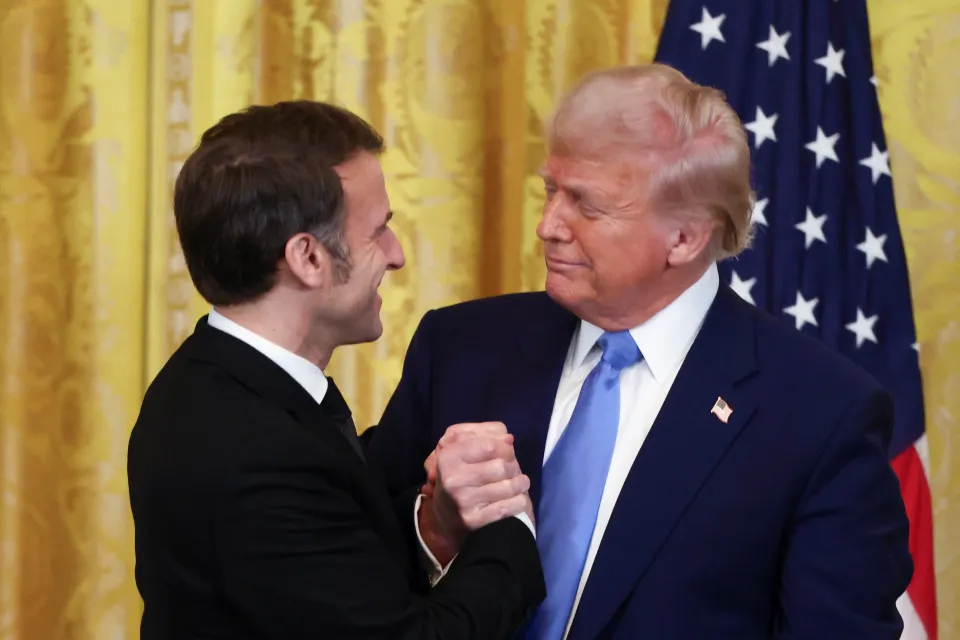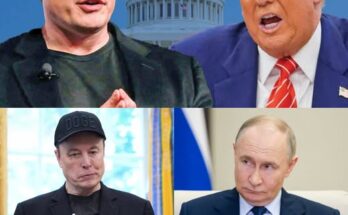February 25, 2025, President Donald Trump and French President Emmanuel Macron convened at the White House to address the ongoing conflict between Russia and Ukraine. The discussions underscored the urgency of achieving a peaceful resolution, with President Trump issuing a stark warning about the potential escalation into a global conflict if a peace agreement is not reached promptly.

The Trump-Macron Dialogue
The meeting between the two leaders was marked by a blend of cordiality and candid discourse. President Trump expressed optimism regarding the cessation of hostilities, suggesting that Russian President Vladimir Putin is amenable to negotiations. He stated, “I really believe that he wants to make a deal. I may be wrong, but he wants to make a deal.” This sentiment reflects Trump’s belief in the possibility of a diplomatic resolution to the three-year-long conflict.
Conversely, President Macron emphasized the necessity for a peace that upholds Ukrainian sovereignty and includes verifiable guarantees. He cautioned against any agreement that might equate to a capitulation by Ukraine, asserting, “This peace must not mean a surrender of Ukraine. It must not mean a ceasefire without guarantees.” Macron’s stance highlights the importance of a balanced approach that ensures lasting stability in the region.
World War III Concerns
President Trump’s remarks during the meeting included a dire warning about the broader implications of the conflict. He noted, “There will be a point where it is not going to stop at those two countries. Already there is such involvement from other countries, and it could really lead to a very big war, World War III, and we are not gonna let that happen either.” This statement underscores the potential for the conflict to escalate beyond regional borders, drawing multiple nations into a larger confrontation.
Divergence in U.S. and European Approaches
The discussions also revealed differences in the U.S. and European approaches to resolving the conflict. While President Trump suggested that European peacekeepers might be acceptable to Russia as part of a peace deal, President Macron stressed that any peace must be substantial and verifiable, ensuring Ukrainian sovereignty is maintained. This divergence reflects the complexities inherent in international diplomatic efforts to resolve such conflicts.
United Nations Vote and International Reactions
In a move that surprised many international observers, the United States voted against a United Nations resolution condemning Russia’s aggression in Ukraine. This action aligned the U.S. with countries such as North Korea and Belarus, diverging from its traditional European allies who supported the resolution. The decision has sparked criticism from various quarters, with some viewing it as a betrayal of longstanding alliances and a shift in the U.S.’s foreign policy stance.
Economic Considerations and Aid
Economic factors also featured prominently in the discussions. President Trump highlighted the financial aspects of U.S. aid to Ukraine, suggesting that Europe should take on a more significant share of the financial burden. He proposed that European nations should provide more substantial support to Ukraine, both militarily and economically, to ensure a balanced distribution of responsibilities among Western allies.
Looking Forward
The meeting between Presidents Trump and Macron signifies a critical juncture in the international community’s efforts to address the Russia-Ukraine conflict. The emphasis on achieving a peace that safeguards Ukrainian sovereignty, coupled with concerns about potential global escalation, underscores the delicate balance that must be maintained in diplomatic negotiations. As discussions progress, the collaboration between the U.S., European nations, and other global stakeholders will be pivotal in determining the trajectory of the conflict and the prospects for lasting peace in the region.


